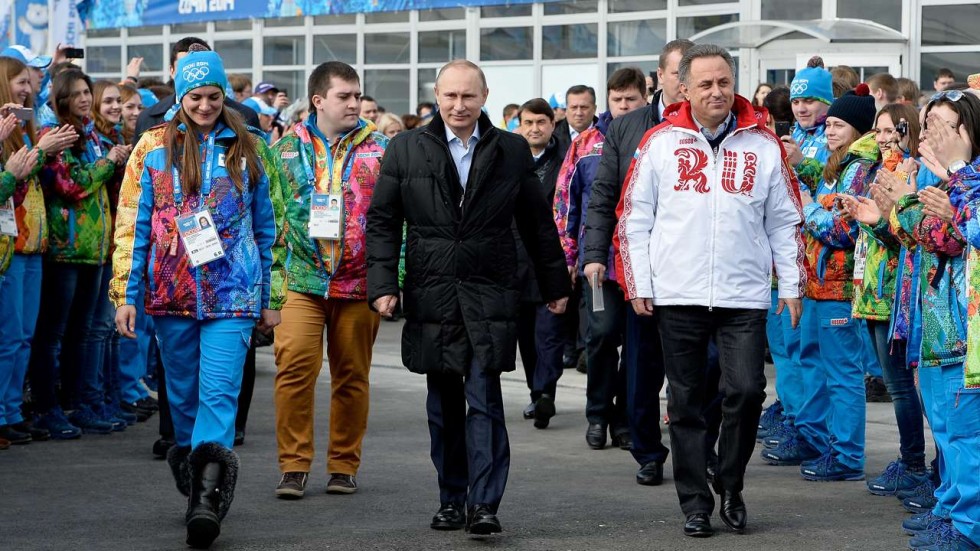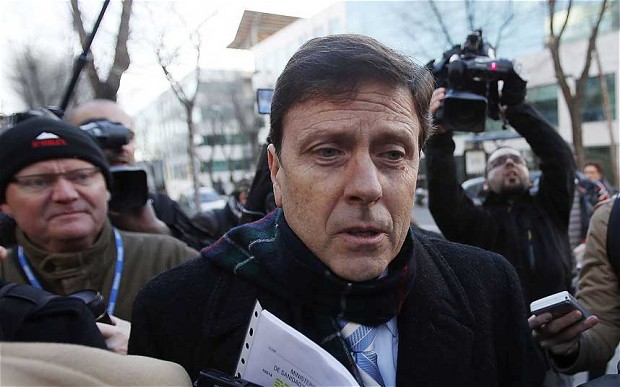Since it was first introduced at
the Atlanta Games in 1996,[1]
the CAS ad hoc Division has never been as crowded as it was during this year’s Rio
Olympics. This is mainly due to the Russian doping scandal, which has fuelled the CAS with Russian athletes challenging their
ineligibility to compete at the Games. The CAS recently revealed that out
of 28 awards rendered, 16 involved Russian athletes challenging their
ineligibility. This Russian ballet is
a direct result of the shocking findings of Richard McLaren’s Independent Person (IP) Report ordered by the World Anti-Doping Agency (WADA).
McLaren’s investigation demonstrated that the Russian State was coordinating a
sophisticated doping system. The revelation triggered an outrage in the media
and amongst other competitors. Numerous calls (especially by WADA and various National Anti-Doping Organisations) were heard urging the IOC to ban the entire Russian
delegation from the Olympics. The IAAF decided to exclude
the whole Russian athletics team, [2]
with the exception of Darya Klishina, but, to the disappointment of many, the IOC refused to heed these calls and decided, instead,
to put in place a specific procedure to assess on a case-by-case basis the
eligibility of Russian athletes.
The IOC’s Decision (IOC
Decision) of 24 July foresees that the International Federations (IFs) are
competent to determine whether each Russian athlete put forward by the Russian
Olympic Committee (ROC) to participate in the Olympics meets a specific set of
conditions. Moreover, the ROC was also barred from entering athletes who were
sanctioned for doping in the past, even if they have already served their
doping sanction. In the end, a majority of the Russian athletes (278 out of 389 submitted by the ROC) cleared the IOC’s bar relatively easily, but some
of them did not, and many of the latter ended up fighting for their right to
compete at the Rio Olympics before the CAS ad hoc Division.[3]
In the following blogs, I will analyse the ten published CAS awards related to
Russian athletes.[4] It
is these legal fights that I suggest to chronicle in the following parts of this
blog. To do so, I have divided them in five different (and analytically coherent)
Acts:
Editor’s note: This report compiles all relevant news, events and materials on
International and European Sports Law based on the daily coverage provided on
our twitter feed @Sportslaw_asser. You are invited to complete this survey via the comments section
below, feel free to add links to important cases, documents and articles we
might have overlooked.
The Headlines
For the world of Sport, the elsewhere known “sleepy month” of August
turned out to be the total opposite. Having only just recuperated from this
year’s Tour de France, including a spectacular uphill sprint on bicycle shoes
by later ‘Yellow Jersey’ winner Chris Froome, August brought another feast of
marvellous sport (and subsequent legal drama): The 2016 Olympic Games in Rio de
Janeiro.More...
Editor's note: Marjolaine Viret and Emily Wisnosky are both editors of the ASSER International Sports Law Blog specialized in anti-doping matters, they are also involved in the World Anti-Doping Commentary project funded by the Swiss National Science Fund.
Introduction
A remarkable aspect of the run-up to the 2016
Rio Olympic Games was the stream of negative media reports portraying
broad-scale public mistrust in sport, with the most prominent topic being the doping
scandals in athletics and questions surrounding the participation of Russia.
A different controversy, but one also
directed at the credibility of sports, has exposed a few female Olympians to
repeated, and at times rather intrusive, media scrutiny. In June 2016, it was reported
that Indian track-and-field athlete Dutee Chand had qualified for the Rio
Olympic Games by breaking the national record, thus to become the first Indian
athlete to run the 100m at the Olympics since 1980. The attention that Dutee
Chand’s qualification attracted within international media, however, was not
related only to her outstanding results. It came as part of a medical, ethical
and legal controversy that has existed for many years relating to ‘policing’
the male versus female divide in sports. Another athlete who has found herself
in the midst of this controversy is South African runner Semenya Caster, whose
participation in the Olympics has been the object of much
conjecture.
The divide between male and female athletes
forms the core of most sports’ competition rules, including athletics. The
justification for this basic divide has rarely been questioned as such, but has
been a matter for debate when it comes to handling atypical situations on both
sides of the ‘dividing line’ such as ‘transgender’ or ‘intersex’ athletes. A category of
athletes that has, especially, been viewed as a challenge to the divide is composed
of female athletes affected by ‘hyperandrogenism’, a health condition that
results in naturally elevated androgen levels, including testosterone levels.
On 24 July 2015, a CAS panel rendered a decision
involving Dutee Chand (“Dutee Chand” or “the Athlete”) that has fuelled the
ongoing debate about the policies regulating hyperandrogenism in sport. Much
has been reported in the media about the case: controversial issues include
whether the CAS was the appropriate forum to assess these questions; whether
the decision was appropriate, both on the merits and on the procedure; and what
the consequences of the CAS award would be, for the parties, for athletics and
for the sporting community at large.
Much like the current crisis surrounding
doping in sports, the public attention on women with (proven or suspected) hyperandrogenism
is driven by a concern that an athlete’s physiology – natural or artificially
induced could distort competition, destroying the ‘level playing field’
that supports the Olympic ideal. Both topics are also often brought back to the
goal of protecting an athlete’s health. Parallels are further found in the
strong reactions both topics evoke, and the steps taken by the regulating
authorities to convince the public that everything in their power is being done
to preserve a level playing field.
A less obvious but equally important point
of comparison can be found in the issues both topics raise concerning the legal
validity of decisions made by sports organizations, especially in a
science-related context. This blog focuses on those more ‘legal’ aspects,
through the prism of the decision of the CAS in the Dutee Chand matter and its
legal implications. After touching briefly on the
background of the case, we will comment on two aspects of the Chand award with
respect to challenges in regulating hyperandrogenism in sport within the
confines of the law: First from the viewpoint of a CAS panel called upon to
evaluate the validity of a set of regulations, and second from the viewpoint of
the sports organizations seeking to both adequately protect fairness in sport
and to provide a legally valid (and effective) regulatory solution.[1]
More...
Editor’s note: This
report compiles all relevant news, events and materials on International and
European Sports Law based on the daily coverage provided on our twitter feed @Sportslaw_asser. You are invited to complete this survey via the
comments section below, feel free to add links to important cases, documents
and articles we have overlooked.
The Headlines
The McLaren Report on Russia’s State Doping System
It is difficult not to start this monthly
report without referring to the never-ending Russian doping investigation that
is shaking the sporting world. On 18 July, the independent investigation on
Sochi 2014 winter Olympics led by Prof. McLaren, a Canadian law professor, and requested
by the World Anti-Doping Agency (“WADA”), released its report. It confirmed
evidence of widespread, State-sponsored doping in Russian sports and called for
a full ban on the country from the next Rio Olympics. In response to the report,
the International Olympic Committee (“IOC”) vowed to take the “toughest sanctions available”. However, and despite the race against time in the
run-up to Rio 2016, the IOC delayed its decision for several days amid a WADA statement and several press articles
calling for a ban of Russia from Rio Olympics. Meanwhile, it did open an investigation
against Russia’s sports minister, Vitaly Mutko, the head official who allegedly supervised the overall doping cover up and explored all possible
legal actions against Russia. On 21 July, the Court of Arbitration for Sport (“CAS”) rejected the
appeal of the Russian Olympic Committee and 68
Russian athletes against the International Association of Athletics Federations
(“IAAF”) decisions to suspend All Russia Athletics Federation (ARAF) from IAAF
membership given the evidence of a state-sponsored doping system. As a
consequence, Russian track and field athletes were also banned from Rio 2016
Olympics. With the IAAF
welcoming this decision, one could think that nothing was standing in the way
of a full Olympic ban for all Russian athletes. While some Russian athletes announced
that they would appeal the CAS award to the Swiss Federal Court. Yelena
Isinbayeva, the banned pole vault champion, even took it a step further by
claiming that she would challenge the IAAF decision as far as the European Court of
Human Rights. Yet, it is very improbable that any of
these challenges be decided in time for the Rio Games.More...
On Monday 18 July 2016, Canadian lawyer Richard McLaren presented the Independent Person Report to the World Anti-Doping Agency (WADA), regarding the alleged Russian
doping program surrounding the 2014 Sochi Winter Olympics. The report was expected
to seriously threaten the participation of Russian Athletes to the rapidly
approaching Rio Games, starting on 5
August. In the weekend prior to the report’s publishing, Reuters obtained a leaked
letter drafted by the CEO’s of the US and Canadian anti-doping agencies,
which according to the New York Times was backed by “antidoping officials from at least 10 nations— including
those in the United States, Germany, Spain, Japan, Switzerland and Canada — and
20 athlete groups”, urging the International Olympic Committee (IOC) to
ban all Russian athletes from the upcoming Olympics.

Source: http://ww4.hdnux.com/photos/50/23/01/10563667/3/920x920.jpg
More...
Editor’s note: This report compiles all relevant news,
events and materials on International and European Sports Law based on the
daily coverage provided on our twitter feed @Sportslaw_asser. You are
invited to complete this survey via the comments section below, feel free to
add links to important cases, documents and articles we might have
overlooked.
The headlines
What a month June
turned out to be. Waking up the morning after the 23rd, the results
of the UK referendum on EU membership were final. The words of Mark Twain: “Apparently
there is nothing that cannot happen today”, might provide the most apt
description of the mood felt at the time.[1]
The Leave campaign’s narrow victory has brought along tremendous economic,
political and legal uncertainties for both the UK and the (other) Member
States. To give but one example, with regard to the implications of Brexit on Europe’s
most profiting football league, we recommend an older blog
by Daniel Geey and Jonny Madill. More...
Editor’s note: This report compiles all relevant news, events and
materials on International and European Sports Law based on the daily coverage
provided on our twitter feed @Sportslaw_asser. You are invited to complete this survey via the
comments section below, feel free to add links to important cases, documents
and articles we might have overlooked.
The Headlines
Challenged
membership put a lot of emphasis on football federations in May. The Court of Arbitration for Sport (“CAS”) has
rendered an award, on 27 April 2016, ordering the FIFA Council to
submit the application of the Gibraltar Football Association (GFA) for FIFA
membership to the FIFA Congress (the body authorised to admit new members to FIFA). The GFA has sought since 1999 to become a member of
UEFA and FIFA. In May 2013, it became a
member of the UEFA and went on to seek membership of FIFA. More...
Forget the European Championship currently held in France or the
upcoming Olympic Games in Rio. Doping scandals are making the headlines more than
ever in 2016. From tennis star Sharapova receiving a two-year ban for her use of
the controversial ‘meldonium’, to the seemingly never-ending doping scandals in
athletics. As if this was not enough, a new chapter
was added on 14 June to one of the most infamous and obscure doping sagas in
history: the Operación Puerto.
The special criminal appeal chamber,
the Audiencia Provincial, has held that the more than 200 blood bags of
professional athletes that have been at the center of the investigations since
2006 can be delivered to the relevant sporting authorities, such as the Spanish
Anti-Doping Agency (AEPSAD), WADA, the UCI and the Italian Olympic Committee
(CONI). In other words, there is now a good chance that the identities of the
involved athletes might eventually be revealed.

Source: http://www.telegraph.co.uk/sport/othersports/cycling/9834122/Operation-Puerto-doctor-Eufemiano-Fuentes-treated-tennis-players-athletes-footballers-and-a-boxer.html
This case note will analyze the court’s ruling and summarize its most
important findings. Given the amount of time passed since the scandal first
came to light (2004), the blog will commence with a short background summary of
the relevant facts. More...

The decision of the
Bundesgerichtshof (BGH), the Highest Civil Court in Germany, in the Pechstein case was eagerly awaited. At
the hearing in March, the Court decided it would pronounce itself on 7 June,
and so it did. Let’s cut things short: it is a striking victory for the Court
of Arbitration for Sport (CAS) and a bitter (provisory?) ending for Claudia
Pechstein. The BGH’s press
release is abundantly clear that the German judges endorsed the CAS
uncritically on the two main legal questions: validity of forced CAS
arbitration and the independence of the CAS. The CAS and ISU are surely right
to rejoice and celebrate the ruling in their respective press releases that
quickly ensued (here
and here).
At first glance, this ruling will be comforting the CAS’ jurisdiction for years
to come. Claudia Pechstein’s dire financial fate - she faces up to 300 000€ in
legal fees – will serve as a powerful repellent for any athlete willing to
challenge the CAS.More...
Editor’s note: This report
compiles all relevant news, events and materials on International and European
Sports Law based on the daily coverage provided on our twitter feed @Sportslaw_asser. You are invited to complete this survey via the comments section
below, feel free to add links to important cases, documents and articles we
might have overlooked.
Marine Montejo is a graduate from the College of
Europe in Bruges and is currently an Intern at the ASSER International Sports
Law Centre.
The Headlines
The Belgian Court of Appeal released its
judgment this month regarding Doyen’s legal battle against the FIFA TPO ban.
The Appeal Court confirmed the first instance decision and ruled out any provisional
measures to block the ban’s implementation (for an in depth review, see
our blog post). More importantly, the Court
reaffirmed that Swiss based sport federations are liable in front of EU Members’
States courts when EU competition law is involved. That means the next
important step for this legal battle is whether or not the European Commission
is going to open a formal proceeding (Doyen
already lodged a complaint) to assess the compatibility,
and more importantly, the proportionality of the TPO ban with EU law. Only a
preliminary ruling by the CJEU could hasten the decision if one of the European
national courts, hearing a case brought by Doyen (France or Belgium), decided
to refer a preliminary question.More...